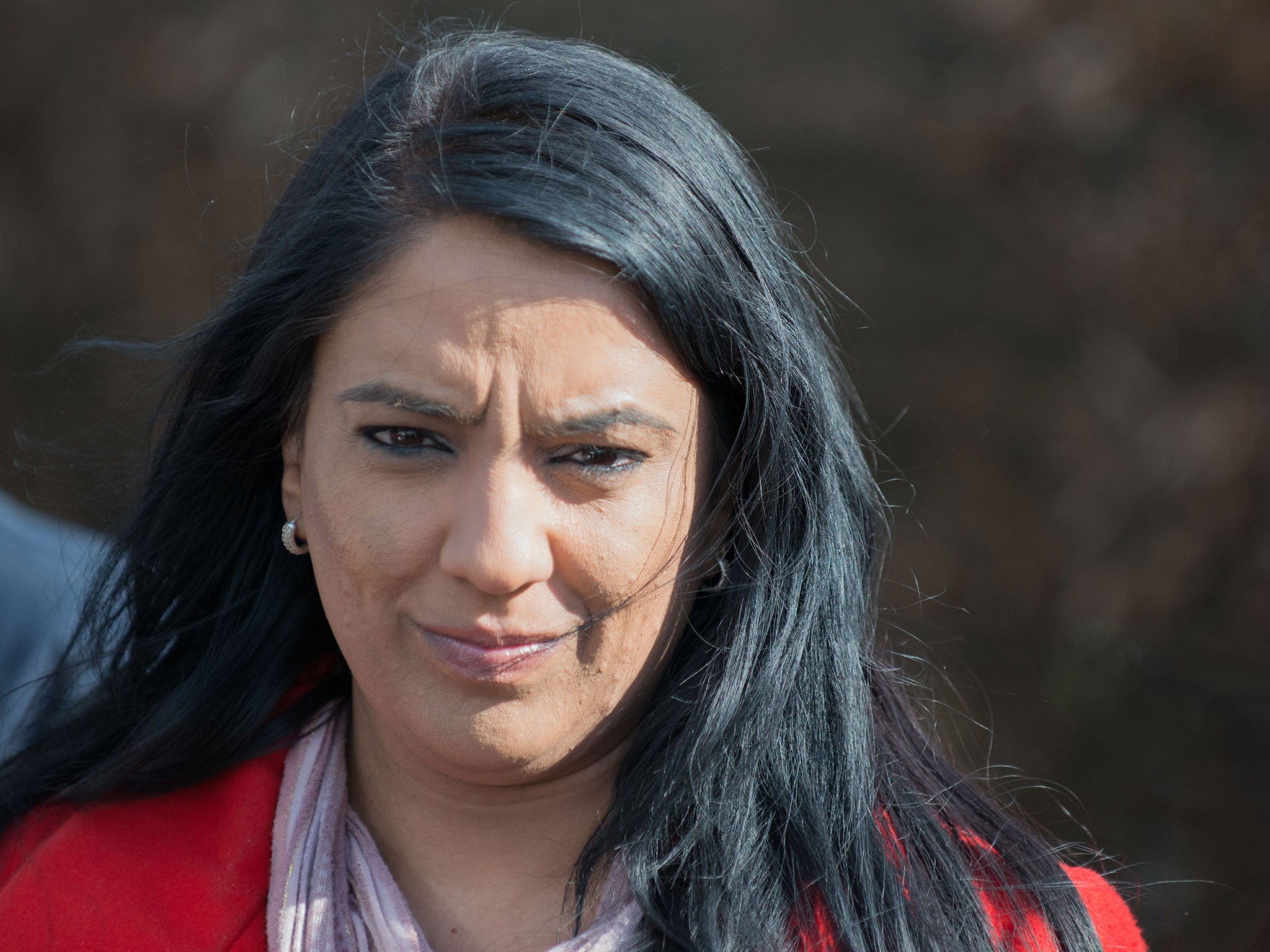Naz Shah: Labour MP who suffered a forced marriage criticises failure to bring more prosecutions following new law
'Marriage is about equality and love in a relationship two which both parties consent - anything otherwise has to be condemned'

A Labour MP who suffered a forced marriage has criticised the failure to bring a greater number of prosecutions following the first conviction under a new law criminalising the practice.
Naz Shah, who has spoken publicly about being forced into a violent marriage while a teenager, welcomed the conviction of a Cardiff-based businessman who entrapped a woman into marriage by raping and imprisoning her.
The prosecution was the first since legislation making forced marriage a criminal offence was introduced a year ago and highlighted how the practice continues among some ethnic groups in Britain.
But Ms Shah and other campaigners said the case was also singular because it was only one to result in formal proceedings despite the Forced Marriage Unit (FMU), jointly run by the Home Office and the Foreign Office, dealing with 1,267 suspected cases last year.
The MP, who last month unseated George Galloway in the Bradford West seat following a rancorous campaign during which her own traumatic past became an election issue, said she was concerned that insufficient resources were available to crack down on offences and educate communities.
She told The Independent: “It is a concern for me that when we have more than 1,200 potential cases, we have had just one that has led to a conviction.
“I think funding cuts have impacted on resources in this area and we need to put more funding in because even one case of forced marriage is still too many as far as I am concerned.
“We also need to be more pro-active with going into communities and spreading the word that this practice is absolutely wrong. It is not enough to target children in schools, we need an approach that really gets to the root within communities.”
The majority of cases dealt with by the FMU last year came from families with links to South Asia, with 47 per cent of victims originating from Pakistan and 11 per cent from Bangladesh.
Ms Shah said it was important not to define the practice, under which teenage girls and also boys are coerced into marriages abroad before being returned to Britain with their spouses, as driven by religion.
She said: “We see cases across the world - Turkey, even Canada. It is a cultural rather than a religious issue. But wherever it happens, it is fundamentally wrong. Marriage is about equality and love in a relationship two which both parties consent. Anything otherwise has to be condemned.”
Campaigners said a large part of the battle against forced marriage was ensuring that women knew their legal rights under the Anti-Social Behaviour, Crime and Policing Act 2014, which criminalised forced marriage last year.
Polly Neate, chief executive of Women’s Aid, said: “Women must be educated and empowered to know their rights and to understand the new law. Furthermore, women must know they will be seen, heard, and crucially, believed. There are very real risks for a woman coming forward to disclose this kind of abuse, and this must be understood by all agencies involved.”
The Home Office said the law was part of a wider effort which puts Britain at the fore of efforts to halt forced marriage. But it acknowledged that additional effort was required.
Karen Bradley, minister for preventing abuse and exploitation, said: “We are encouraged by this first conviction and hope that the new law is also having a deterrent effect. However, we know legislation alone is not enough and we remain focused on prevention, support, and protection for victims and those at risk of becoming victims.”
